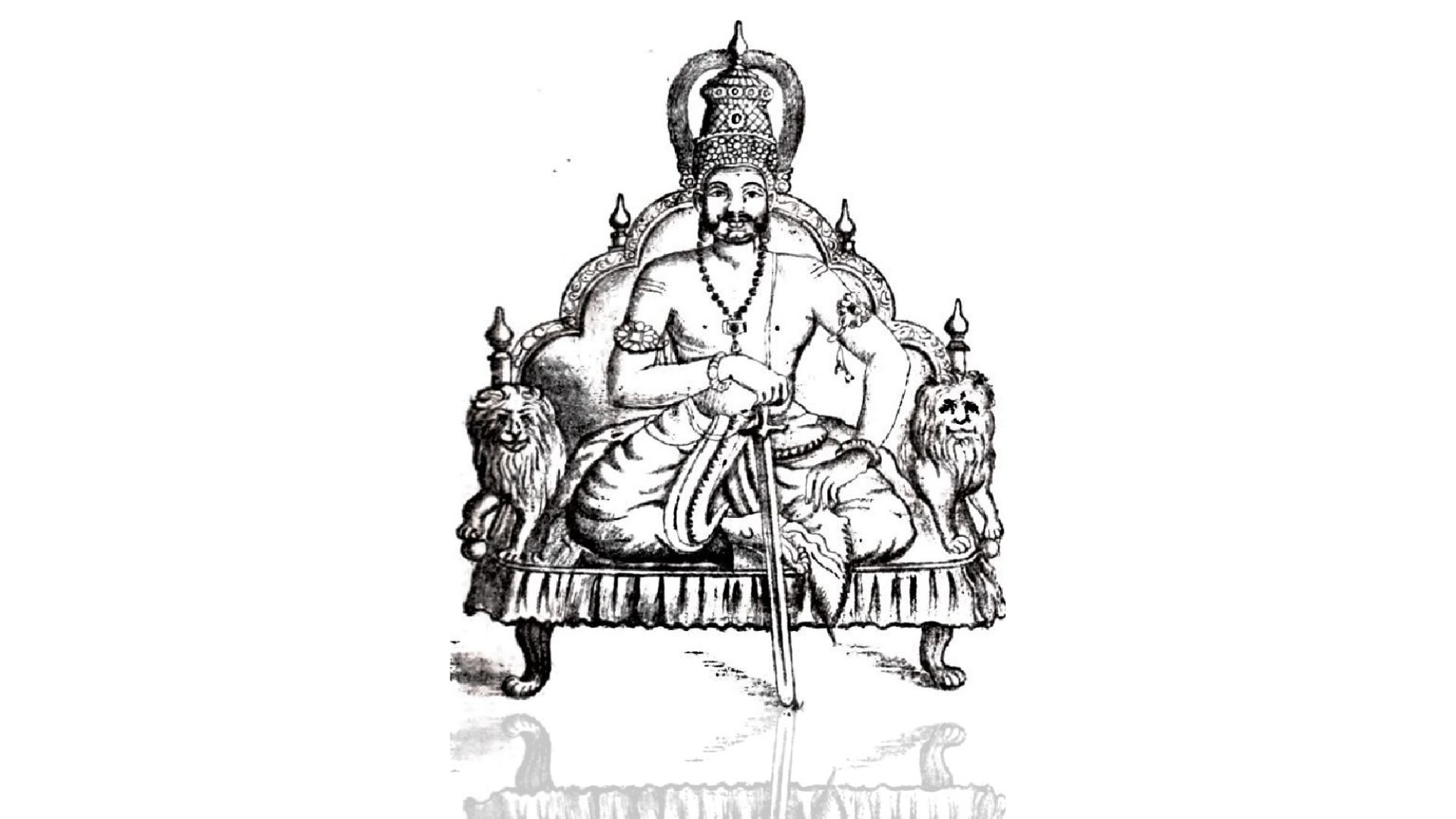
Yayati belonged to the lunar dynasty, his ancestry is interesting. The list of his ancestors include Brahma the Creator. Atri was the son of Brahma and his offspring was Chandra. Budha was born to Chandra and he had a son through Vaivasvaita Manu's daughter Ila. The son, born, was called Pururavas. The popular Pururavas had Ayus through Urvashi. Pururavas had been educated under Kashyapa and he ruled over Pratishthana. His son Ayus did his studies from Sage Chyavana. Ayus was married to the Asura princess Prabha and the couple were blessed with Nahusha. Yayati happens to be the son of Nahusha.
Yayati was a great person. His achievements were many. The great king is spoken about in the epic Mahabharata. Yayati had performed 100 Rajasuyas, 100 Aswamedham, 100 Vajapeyam, 1000 Atiratras, 1000 Pundarikas and countless Agnishthomas and Chaturmasya. He was known to be a very big philanthropist. Yayati's story is best read in the Bhagavata Purana. His father Nahusha had been transformed into a python because of his arrogance. Yayati's elder brother Yati is given the kingdom but he becomes an ascetic. The kingdom is then given to Yayati. He in turn appoints his four younger brothers to rule the world in all the four directions.
The story of Yayati is better understood if one gets to know the background connected with Devayani and Sharmishtha. Devayani was the daughter of Asura Guru Sukracharya. She was quite close to the daughter of the Danava ruler Vrishaparva. Both the girls used to meet up often and one day they went to have a bath in a forest pool. This pool was close to the hermitage of Sukracharya. Devayani has a bath in the pool and wears the saree of Sharmishtha by mistake. Devayani gets scolded by the Danava princess. This in turn infuriates Devayani. She states that the Asuras were dependent on her father and he was not some 'employee ' who was in their service.
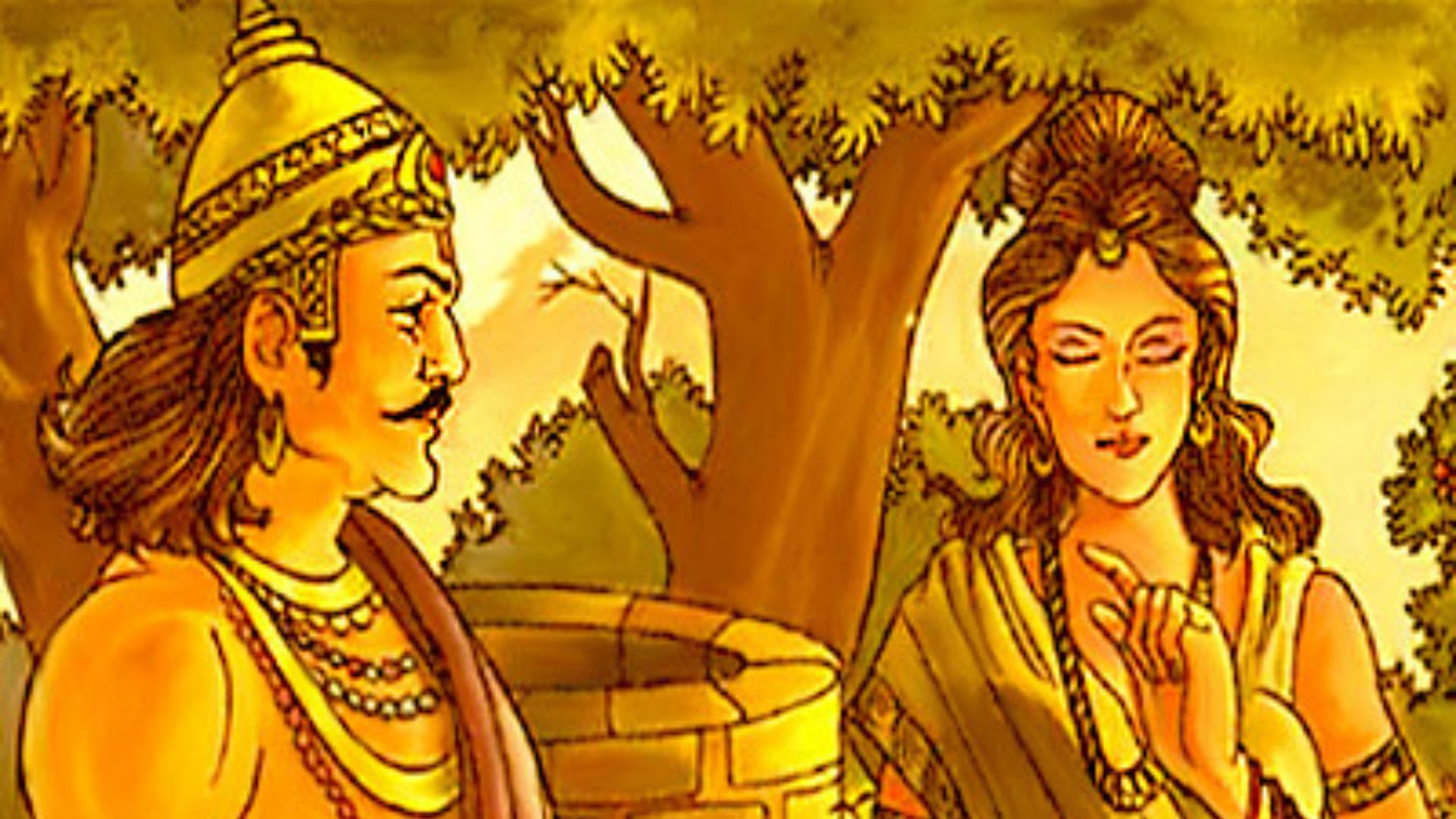
This utterance of Devayani infuriates Sharmishtha and she chucks Devayani into a well with the help of her servants. The naked Devayani is helped by Yayati. He had come to the well to drink water. Yayati helps Devayani to climb out of the well and she requests him to marry her. Yayati considers this to be a blessing and agrees to marry her. Meanwhile Devayani resolves to make Sharmishtha her servant in return for what had been done to her. Vrishaparva agrees to this. Sukracharya and his Mritsanjeevani mantra had been safeguarding the kingdom of the Asuras and therefore Vrishaparva had to agree to this order of Sukracharya.
Sharmishtha moves over to the palace of Yayati along with Devayani. Sukracharya had advised Yayati to be loyal to Devayani. Yayati gets to meet Sharmishtha one day and they begin to have an affair. Sharmishtha requests Yayati to give her a child. Yayati is reluctant initially but Sharmishtha makes him accede to her request. Sharmishtha tells Yayati that it was the job of the king to keep his subjects happy and therefore he had to sire children through her. Eventually Devayani has Yadu and Turvasu from Yayati while Sharmishtha has Druhyu, Anu and Puru.
Devayani gets to learn about the affair between Yayati and Sharmishtha. She complains about the same to her father Sage Sukracharya. The grand old sage curses Yayati with premature old age for the mistake committed by him. However Devayani requests her father to be a bit kind, for Yayati is her husband. Another version states that the sage relents after learning about Sharmishtha's desire to become a mother. Sukracharya tells Yayati that it would be possible to become young by swapping his old age with one of his sons. He could in turn return the youth back to the same son and get back to being old.
Yayati requests his sons to exchange his old age for their youth. One by one, the sons refuse. The youngest Puru, who was born through Sharmishtha agrees to swap his youth with his father. A mightily pleased Yayati declares Puru as his heir. Later Puru became the progenitor of the Kuru dynasty. Subsequently Yayati enjoys all the pleasures of the senses for about 1000 years. He experiences passion to the full. Yayati understands the futility of leading a life of indulgence. He realizes that food, wealth and women found in the world at large cannot appease the lust of a single person. He understood that craving for sensual pleasures cannot be reduced through indulgence. Yayati learns that such a life increases desires and he is able to compare desires with the increased quantities of ghee that aggravate the fire when poured inside. Yayati in the corporate context has a metaphor for leaders holding on to their seats and overstaying in a position. The analogy of swapping youth’ is taking away opportunities and energy from younger high potentials who deserve to lead.
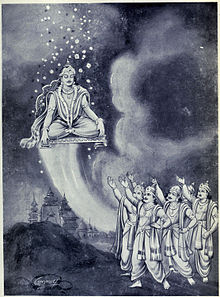
The indulgent ruler realizes that the person who wishes to enjoy peace of mind, happiness and contentment should instantly renounce pleasures and craving for the same. He understands that one should seek the thing which neither grows old nor ceases, no matter how old the body becomes. Yayati discovered wisdom after traveling in the road of excessive indulgence. He gratefully returns the acquired youth to its rightful owner Puru and takes back his old age. Yayati renounces the world and spends the rest of his days in the forest. The forest life and spiritual practices help Yayati to succeed and he is rewarded with Swarga. This is but one step less than moksha or liberation.
The afterlife of Yayati is interesting. He would travel to other celestial regions because of the virtues acquired over time. He went to Satyalok and visited Brahma and at times he spent time with Indra at Amaravati. A conversation between Indra and Yayati brought about a fall from grace . Indra had wanted to know about the number of sacrifices done by him. Yayati boasted that none was equal to him. This sense of superiority and bragging angered Indra, the Lord of heaven. Therefore Yayati was thrown out of heaven. This made Yayati beg for some mercy and Indra said that even though he fell from heaven, he would fall amidst noble people.
Yayati fell from heaven and got to meet his grandsons - Ashtaka, Vasuman, prattarddana and Sivi ( kings and sons of Mamata or Madhavi ). They learned that it was Yayati , the grandfather. In turn , they learnt about heaven, hell and rebirth from Yayati. The compassionate grandsons offered their meritorious powers to Yayati and he was able to reach heaven once again. Five golden chariots took them to heaven. Yayati because of the merits of his grandchildren and his grandchildren because of the merit acquired due to the gifting of their virtues reached heaven.
The novel Yayati by the Indian writer V.S.Khandekar was written in 1959. Khandekar saw the modern world with its materialistic values as an elephant which rampaged through the delicate garden of traditional virtues and thoughts. These materialistic values had blurred the distinction between good and evil, between selfishness and compassion and also made people blind to the evils caused to a life of indulgence and pleasure. Khandekar had looked at the past and chosen this story which was used by him later to expose the futility of contemporary society's endless obsession with avarice and lust. In Yayati, the Sahitya Academy ( 1960 ) and Jnanpith Award ( 1974 ) winning author integrates these concerns into the story.
V.S.Khandekar had taken the story of Yayati from Yayatopakhyan ( story of Yayati, literally ) , a sub narrative of Adi Parva ( the Book of the Beginning ) in the Mahabharata. Khandekar builds the story into a novel by adding several episodes. He develops it into a love story with morality as the theme. While narrating , Khandekar ( Vishnu Sakharam Khandekar : 1898 - 1976 ) brings the relevance of the character Yayati to the current context. Through the YAYATI of V.S.Khandekar, one can see the common man discontented and restless in spite of enjoying pleasures to the hilt. His blindly running after pleasures makes him all the more unhappy.
The story of Yayati's journey from attachment to detachment and from being vain glorious to being wise offers each one of us a path that would guide us towards leading a contented and value based life.
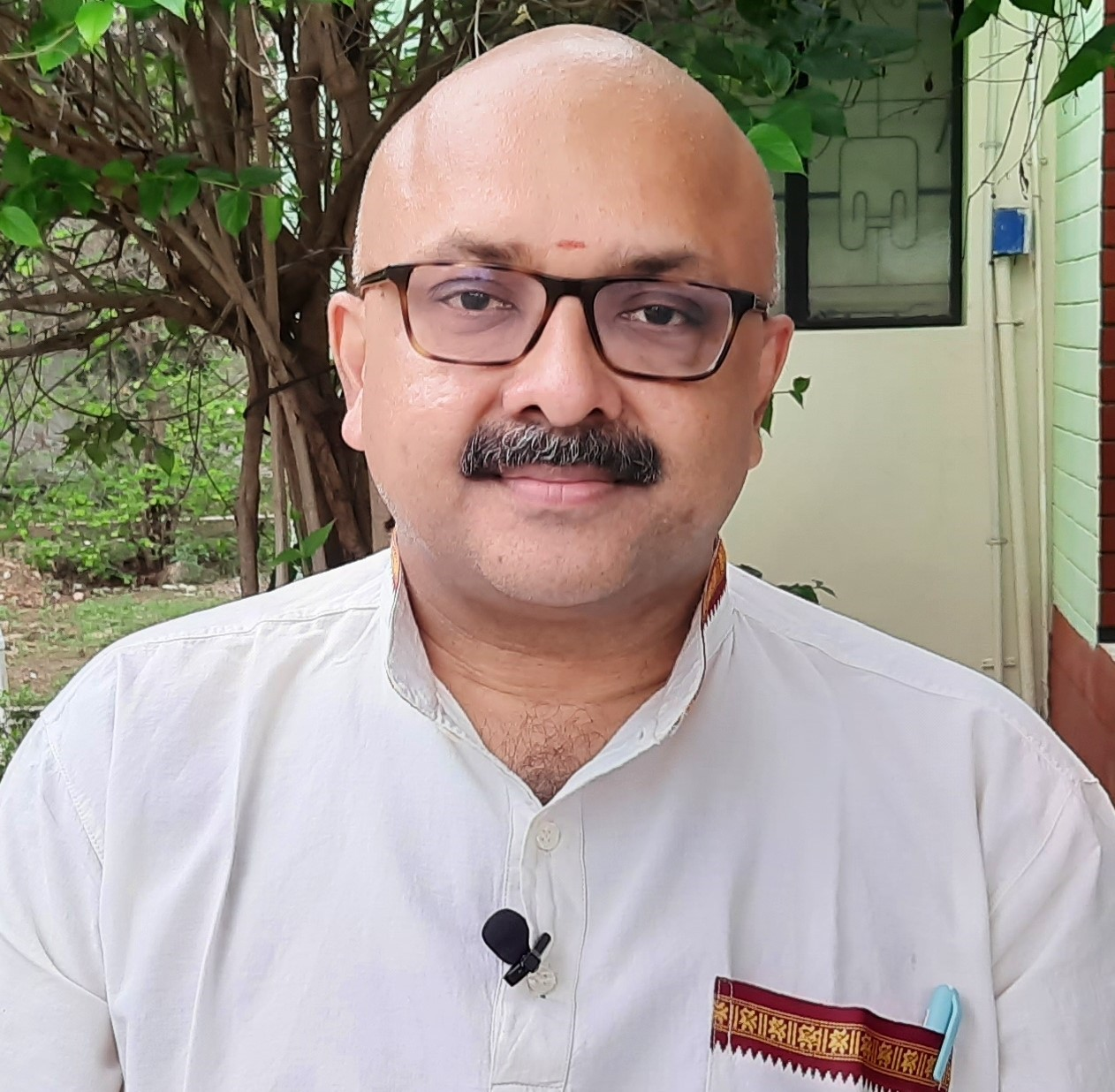 Mr. Rajesh Govindarajulu is one of the founding members of The Verandah Club Pvt. Ltd. He is a leading columnist, historian, jeweler, entrepreneur, and a heritage enthusiast who is earnestly working to revive the past in the light of the present. Experiential learning about the history of Coimbatore is his main course of interest and he is also a panel member of many colleges in the city.
Mr. Rajesh Govindarajulu is one of the founding members of The Verandah Club Pvt. Ltd. He is a leading columnist, historian, jeweler, entrepreneur, and a heritage enthusiast who is earnestly working to revive the past in the light of the present. Experiential learning about the history of Coimbatore is his main course of interest and he is also a panel member of many colleges in the city.
NEXT ARTICLE
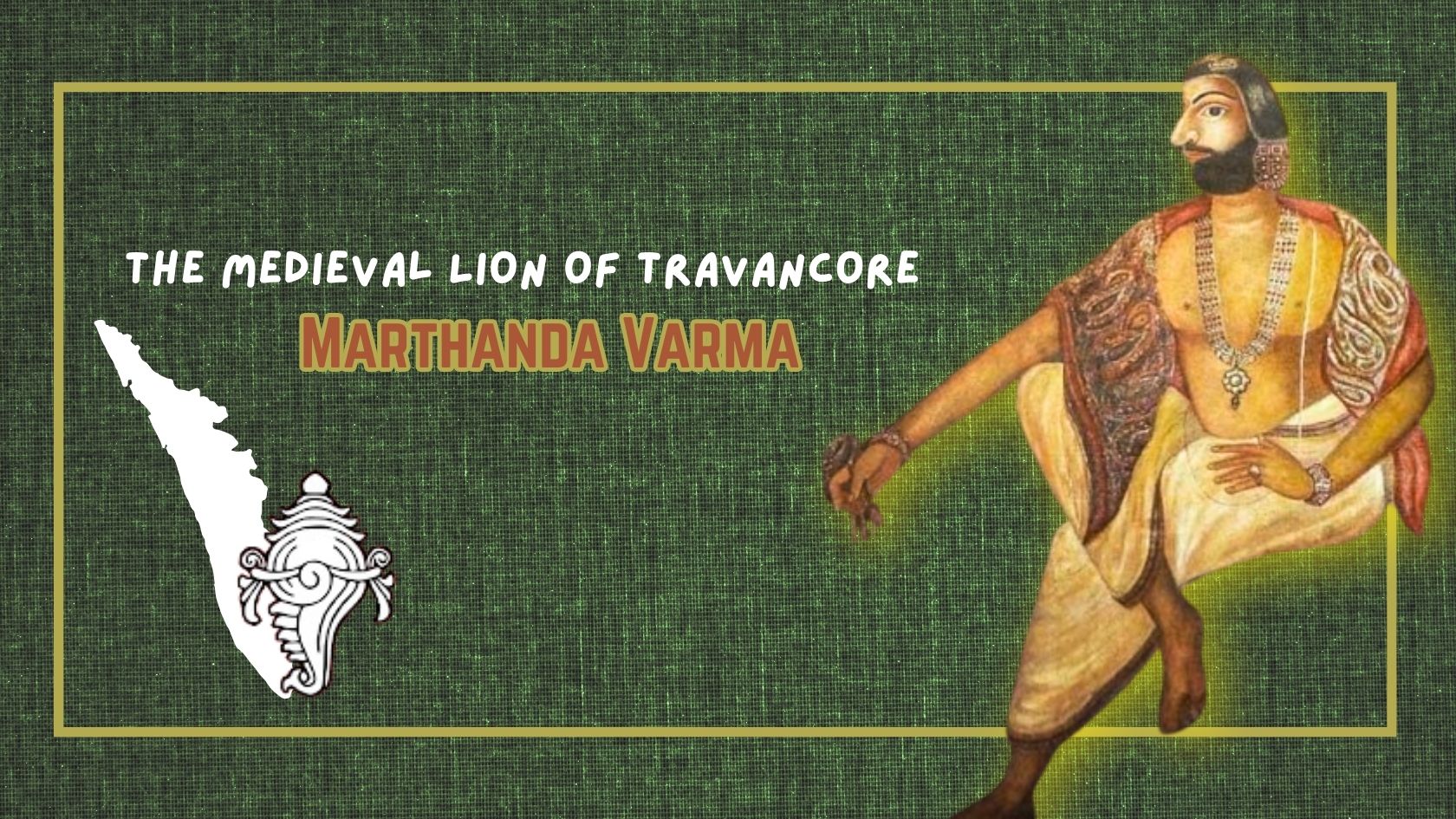
Shri Ramachandra Prasad's captivating narrative and the hot chai that was served at the right time transported me to ancient Kerala, where the extraor...
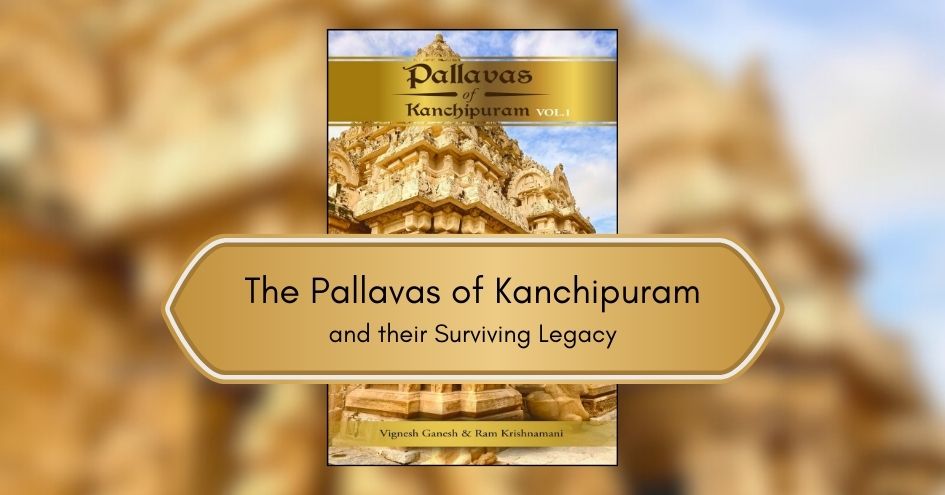
Introduction In Bharatvarsha, History is not the account narrated by victors. It is the record left behind by survivors. The study of Indian History...

It is the first-half of the 8th Century C.E. in South India. The Pallava kingdom possesses strength and prosperity with some of the greatest monument...